Never let it be said that timeliness is my strong suit. Alright, answers to the questions asked of me.
@under_the_carpet asked:
ok. I don't know how to exactly put it into a question. But I always wanted to know more about your faith. It'll be a few.
I read you identify as catholic. To make it simple for me...WHY?
How "gnostic"/agnostic are you?
what do you do/think/feel when you stumble upon a 'rule' you actually disagree with? (or does that not happen?...I can't imagine.)
How do you 'solve' the god vs gay question in your head, that I see so many people struggle with?
Oh dear, you have asked a very complex and lengthy question that I'm not entirely sure I know all of the answer to. I was going to do a post trying to articulate some thoughts I've been developing on this very topic but, despite the many times I start, I haven't been able to bring anything to completion. Perhaps this may be a start.
As I've said numerous times in a multitude of places, most of my friends (or, at least, the ones I have generally most felt comfortable around or the greatest intellectual connection with) have been atheists. The Midwest region of the United States is home to a wide range of Christian denominations with an inclination to groups such as evangelicals and fundamentals. The Chicago-land area is, thankfully, a little less strong in the general social acceptance of these groups but the influence and individuals are there just around the surface (as I'm pretty sure I've mentioned at least once in a post this year). Mauger whatever changes I've had in my personal beliefs (regardless of spirituality) and religious beliefs over the years, I think there's been a constant that I've felt safer amongst the irreligious; maybe that's because my sexuality has always made me unable to feel fully accepted in most religious circles; maybe, as I said, it's because I've had more in common, generally; maybe other reasons or all of the above.
In college, I had doubts about the idea of God/s. While I've tossed out the fact casually a total of about five times since, I generally don't talk about that time period. I wasn't particularly happy there (though I'm sure there are many who eventually become atheists that feel the same feeling). The end result, however, was that I came to discover that I was far more strongly a religious person than even I had realized. For whatever reason, I tend to be inclined to the religious (as a concept, not the people, mind you); this was deafeningly clear to me when I was questioning whether to become an atheist. There are certain things which trigger off a sort of this-is-right-or-righteous-or-even-holy feeling for me; while I tend to value reason over feeling, I've found that particularly strong feelings tend to indicate something I think but haven't been able to put into rational words yet. The idea may be wrong but it's informative to know, generally, so I'll tuck it away and chew on it over time. There is a particular feeling I get when I encounter something I feel is fundamentally correct in a way. For example, I get that feeling when talking about governments and the freedom of religious belief. I don't know what to make of these feelings yet but I've found I also have them during religious experiences. This will be important later.
You ask how agnostic I am (Gnosticism is an entirely particular belief system that I've found fascinating, flirted with, but ultimately leave not feeling inclined to join). Ever since I seriously contemplated the question (whenever that may've been), I've been of the firm belief that, given the information that we have at this moment in time (and, admittedly, given the You-can-do-ANYTHING quality we tend to ascribe to God), anyone who can say – with zero doubt – that there is or is not a God/s has lost all intellectual currency ze may have had in my eyes.
Many atheists describe themselves as skeptics. I find that it's my skepticism that allows my religious belief. I simply cannot believe, with all that remains left unknown about the universe, that we can so soundly rule out the idea of God/s. Of course, any truly rational atheist would tell you that the degree of evidence inclining that there exists some supernatural being of the sort often described is outweighed by the evidence indicating that there is no such being; ze simply chooses to go with the more believable option. And that's fair; I'd be inclined to wager that atheists have a more sound argument, really. Still, I find myself religious.
I do think part of it has to do with the fact that I tend to be a moral absolutist. Maybe it's also the fallout of being a rationalist. Everything has an answer. It may be complex and vary by certain conditions but everything can eventually be explained in a concrete way. When I first joined Williams Secular Community and we went around the room having each person say something that ze believed in, I wanted – as the sole religious person in that room – to say something other than "I believe in God" or something of that stripe. What I eventually decided on was "Perfect reason/logic is infallible". There is one vague bit to it, obviously. "Perfect logic" would seem to indicate that there is no contradiction or breaking of logical rules. The issue is, if you don't have information about something, you can't make certain deductions (e.g. if all you know about the sun and the moon is that they're round, you may say, "Sun = Moon," but that clearly isn't correct). So part and parcel to this idea is that all information relating to the subjects involved is considered and known.
But I bring it up because I think it is indicative of my thinking process. To speak vaguely and allow variance until I have a greater understanding, I believe in a notion of Truth. We live in a reasonable and logical universe. It's a curious thing that there are even laws to our world, particularly if there is no creator; certainly it's not impossible for such world to exist without a creator (we would be the evidence) but it is curious. And I think, more so than the notion of a God existing, I have a need to believe that there is a sort of universal Truth that we can all reference and aspire to. I need order and I need logic; it doesn't have to be intellectually created (in the conversations I've had with my brother over the idea of an absolute morality, there has been some pretty fantastic discussions over the notions of systems (something that's a fascination of my own); assuming that there is no God, it's rather interesting the way that systems have been able to crop up naturally in our world and the way they sustain themselves in spite of it seeming they would need a designer). But, for whatever reason, I need to believe there is an order to the universe and a way that is proper to act in the same way we "all" acclaim the notion of freedom of speech for proper governments or believe in and celebrate the capabilities and self-belief in humanity as exercised through the government of a republic or believe in the great works and arts over time or believe in great ideas and celebrate philosophy. The greatest thought process that Western civilization ever accomplished was the notion that ideas could be ordered by logic and, by extension, you could come to finite conclusions about things, that not every single idea was necessarily correct. For better or for worse, I truly believe this.
I tend to think that the notion of a Creator best explains this but, as I've mentioned, I do not necessarily think that has to be the case. To sort of put it another way and in relation, I once said on here, "If anything must be told about my spirituality, let it be said that intelligence was my religion, and education, my worship." If anything was ever to be described as my religious belief, it is these notions. Most everything else is debatable.
Of course, none of that really explains "Why Catholicism?" (oh dear, this is probably going to take a while – but you asked the question). There was a moment, one time, when I was with my sister (and in a somewhat giddy and snarky mood) when I remarked (and, no, I don't recall what excited this remark), "The Evangelical believes that the root of all things tie back to God and, due to this, we ought to worship Him; all reasoning proceeds from thus and it is all he or she pursues. The Catholic, however, seeks Truth."
For those (generally those who tend to have a thing against Catholicism) who might take that to insinuate that God is not important to Catholics, I would easily respond that, of course, Catholics believe all things proceed to and from God but that is merely a portion of the Truth.
To somewhat explain my snark* and to provide another example, I have a very dear friend of mine who grew up in a very fundamentalist, evangelical town (though, really, she's not the first friend I've had who's had a very negative experience in such an environment); as someone who was remotely agnostic (her parents are Unitarians), most of her time there was having people trying to convert her, feeling continually judged, and just pretty much being treated poorly (by my own standards, at the very least). By the time she got to college (thus where I met her), she was a fairly bitter, hard-line atheist. I forget the exact details of the story but she overhead (somewhere) an eventual mutual friend of ours mention that he was Catholic (maybe it was some orientation event?); shortly after, she cornered him on a bus the group was riding and, without much ceremony, immediately started grilling him regarding religious belief and why it was positively ridiculous to have any.
During this, she asked him, "Well, I don't believe; does this mean I'm going to Hell?" to which, with some confusion, he responded, "No." This took her a bit by surprise; as far as she had ever been taught, this was what religion boiled down to: believe or perish. So she asked, "You don't?" After a moment of hesitation, his response was, "I believe Catholicism is the best way but not the only way."
One more example. There's a book my mother has somewhere upstairs either written by or written about the pastor of the mega-church my aunt attends. On the back of the book, in large letters prefacing the book summary, is a quote that says, "People matter to God; therefore, they should matter to us," (or something of the like). Fundamentally, such a notion could only occur from one who takes the Evangelical path to logical reasoning (okay, that's not entirely true but quite frequently). In contrast to this, I think it was Pope Benedict who said that sex purely for pleasure, even in the confines of a relationship, is selfish because the other person is, thus, neglected. I, ultimately, disagree with His Holiness's proof but there's still a marked difference between the two forms of reasoning. The pope tries to give a reasoned response and justification. The pastor has just said, "Well, God says so."
While I've explained "Why Religion" for me, I think the best explanation for "Why Catholicism" is simply that, for all its flaws and pitfalls, Catholicism is the closest thing to what I want in a religion here on Earth.
And I think that, in particular, is what most people don't get when they suggest for Catholics to convert to elsewhere. Protestantism, as a whole, is not really an avenue because I simply do not believe in being saved by Faith. I could probably be alright with a holy book inerrancy sort of deal but not with the sort of limiting views that that tenet is often taken to; I am always brought to appreciate more greatly that Catholics have Tradition and the Magisterium to pull from to better understand the Bible.
While the more liberal Protestant branches are probably more to my own political persuasion, I often find that the conservative criticism that, for them, "anything goes" holds true. It's very important to me that what you do is purposeful and fully thought out. I don't want to join a church simply because that was how I was raised and I want that special feeling (though, of course, that can be important). I want to make sure that, if my bible says it's okay to rape women, I have an actual response as to why that is. There was a liberal church in the middle of the campus of my college that was very awesome; they often worked with the Queer Student Union on campus, were very involved in social justice, etc. Being part of the QSU and InterFaith, I also worked with them. During conversation one time, the pastor mentioned that the church had been so focused on social justice (I believe that may have been the reason for their founding) that they've been trying to sort of rediscover their roots; while on this path, she mentioned that they were discovering all sorts of new things (as any root-searching should entail), including that there were parts of the bible they found they didn't particularly like. For me, dealing with those sorts of things would be where I'd build my base from.
People often assume that it's the High Church and elaborate liturgy I like and often suggest the Episcopalians or some of the Lutherans. But what these fail to realize are the ways in which Catholicism itself is quite unique. I'll see if I can do it any justice in trying to point it out.
I doubt I'll really explain it well but, if any religion could claim the title, you could argue that Catholicism is wedded to intellectualism. Perhaps extremely influenced by Roman and Greek culture (i.e. the Hellenic culture that had culminated by the time of the Roman empire), many in the early church philosophied about their religion (it's probably what earned religion the title of Queen of the Sciences). It's why they came to believe that God made the world ex nihilo (out of nothing): if God had to stoop to making the world out of existing material, that means there are things which even God couldn't control/do, etc. which would make Him less than an ultimate God. They attempted to apply the philosophy (much to many other denomination's dislike) of Plato/Aristotle. When the empire fell, a lot of the books and records were kept safe by monks. This often means that the theology of Catholicism is so much more elaborate and complex and, in turn, deep. God gave us a brain: "We ought to use it" is the answer of Catholicism.
Once (I think when a televangelist came on the T. V.), I remarked to my brother, "I don't think I could ever stand worshiping in a religion that didn't have a liturgy." Of course, my smart-ass atheist brother responds, "I don't think I could ever stand worshiping in any religion." Maybe it's because I'm a writer and English major but I take symbolism and gestures very seriously. Naturally, liturgy is very cool to me (and also very beautiful; have you heard the chants Catholics and the Orthodox have churned out?). And, to a degree, I really like ritual. I'm not entirely sure why. The Catholic response is that, when we worship, we should worship with more than just our minds: the entire bodies ought to be involved in the process.
And the last way I can attempt to let you understand "Why Catholicism" is the Catholic conception of the Church. I don't know how familiar with Christian theology you are but the idea of the Church is important to the religion. After the Protestant Reformation, the idea of what the Church is was to be understood as the body of Christian believers. This is partially, I think, why you have so many denominations and a lot of people feel comfortable (in the U. S., at least; I've heard it's a phenomenon frequent to us) church hopping: go the Methodists one week, go the Lutherans another Sunday.
For Catholics, we believe that the Church is the institution founded by Christ and as it exists today. But the Church is more than just an institution. It is the body of Catholic believers but also an instrument through which the Holy Spirit works. The pope doesn't get infallibility because we decided we wanted to listen for the rest of our lives to whatever an elected member had to say. The pope is infallible because (in theory) God the Spirit is working through him and guiding him as He is working through the entire Church.
You might respond with, "So what?" The significance of this is that God is active constantly through the institution that you reside in. It is not just that you're attending church; you are in the Church. It's for this reason that the Sacraments (Baptism, Confession, Marriage) can make sense to us while it just confuses other denominations as a pathway for Grace. It's not just actions being performed, they are actions being performed by and in the Church; it is God working through us. In a real physical way, God is presenting Himself before us.
And with that, there's this real sense of security I have as a Catholic that goes beyond just belonging to an organization that is huge. Anytime I go to a Catholic Church, I know any Sacrament I may receive is valid and facilitated by God, regardless of who is giving me the Sacrament and their past. I think that's also why a lot of Catholics have remained Catholic in spite of the scandal and abuse recently: there are terrible people in our Church, as in all institutions, but they are not all of what the Church is. The Church spans across generations and is more than that. We would rather call for greater accountability and try to call for prosecution from within rather than ever leave the Church.
When I was younger and dealing with the fact that there were certain attitudes within Catholicism that I didn't quite agree with, I'd take comfort in the fact that something like 60% of Catholics didn't obey what came from the Vatican. But, in a real way, we never stopped being Catholics. We still attended Mass, went to Sunday or Catholic schools, socialized in the circles, prayed in the same buildings, went to confession under the same priests. I don't think I understood it then but the reason I could find such strength inside those Cathedral walls while fragrantly disregarding the hierarchy was because, I knew, we were right. And in the end, that's what God cares about (Catholicism is about finding Truth). And we were safe within His halls of His Church. Frankly, the only other religion I can think of with anything close to such a concept is Mormanism.
And I guess that's a good place to address your question of what do I do if I come across something I don't agree with. In technicality…there isn't anything. And part of this stems from the fact that most people don't understand how Church doctrine is formed. All that which is declared infallible and dogma is binding. Anything less is decreasing levels of required adherence but not anything which cannot change in the future.
So, for example, I believe Purgatory has been dogmatically defined. You can't be a Catholic if you don't believe in Purgatory. However, while the hierarchy's position at the moment is that homosexuality is "severely disordered" (as in against the order of the universe), it is not something dogmatically defined yet. To a certain degree, I like this because it gives us a stable base from which build knowledge and keep unified. Someone like Curtis (who I really rarely agree with) and I can talk about something pertaining to Catholicism and be entirely on the same level because we both are Catholic.
And I think the last thing I'll mention as to why I'm a Catholic is that, as far as I can see, Catholicism is the only religion that still seems to be growing. Most religions really tie themselves to the idea that nothing will ever change about them; they will always honor their past. Which, to be honest, is true of Catholicism (kinda hard not to be when it's a religion that uses Tradition as an authoritative source). But Catholicism doesn't change in that whatever it declares dogma can never be revised; other religions never change in the sense that everything they've done in the past is all they'll ever do (I once had someone who was Orthodox tell me that the Orthodox have it right because they've changed nothing since (I think…) the Forth Council; Catholicism, on the other hand, comes out with a new dogma "every two years"). The idea of Catholicism is that the Truth is never changing – we just don't know all of it yet; over time, we gain a greater and greater insight into what that Truth is. Which, really, is the basic idea of discovery. But it means that really interesting things happen and not everything is quite understood. For example, we know that, for whatever reason, the Sacraments were established for transmuting Grace and that Baptism redeems the soul of the Original Sin. And yet current thought within the Church is that people who haven't been baptized can be saved. After all, what about babies that die before the chance to be baptized? I don't believe the idea of Limbo has been entirely thrown out yet but you don't have many clamoring towards the idea. So, if you can be saved without baptism…what's the point of baptism?
As far as I know, the Church's answer is that we don't know. We'll eventually know. But not yet.
All that said, I'd be lying if I said that Catholicism is everything I want. While women ordination and homosexuality haven't been dealt with as dogma yet, either of those being dogmatically banished would probably force me to have to find another religion. There's the fact that the notion of preparing for shabbat has always elicited that feeling of something being *right* in me…and I had never prepared for shabbat until I had reached college.
And there's the real troubling fact that Christianity tends to start from this path of "We're all guilty". It's true that Catholicism does a bit better in being firm that the Original Sin is not a sin for which any of us are at fault for (even if we still bear the scar upon our souls) but there is a *real* problem that I have with this notion of guilting ourselves (at its worse, I've seen people make the argument that none of us deserve Heaven, even just-born babies).
The New Testament is actually rather interesting in terms of its political stances and the ways it tries to reverse common norms (the most well known one being the notion of the weak/meek being powerful/"the stone that the builder rejected"). And so it goes with the notion of works. Yeah, being good? Throw out everything you thought you ever had to do. You actually have absolutely *no way* of doing it without Him.
Which, in a way, I get. It's the ultimate type of trust exercise. Throw out any expectation of your abilities and your capability to do anything and just entirely trust that He's got this.
What I absolutely hate about this notion is that, when you take away a sense of responsibility and choice in the direction of your life, it's hard to really impart a sense of…awareness in people. I earnestly think this is why my friend who grew up around fundamentalists was treated so amazingly poorly. Those people have ceased entirely thinking about any of the actions they're committing and how they're treating her; in their minds, the most important thing is you follow Jesus (BECAUSE NOTHING ELSE MATTERS) and, if you don't follow Him, you're breaking the cardinal rule. And that's the scope of their thoughts. You can't get to "Well, let's think about how you're treating her" because, literally, nothing else matters beyond whether or not you're following that rule of believing in Jesus. Anything outside of it is wrong. Why? Because anything we do outside of trusting entirely in God and getting others to do so as well is irrelevant. Irrelevant.
And I get that, in some way, it was trying to respond to a sort of legalism that was cropping up and the sort of people who do good just to look good. But I really think that when you start from a point of "You are disordered without Me", you endue this real sense of inferiority in individuals. I truly believe a just God doesn't tell you you're shit so you better believe in Me (but that's gonna be difficult too 'cause, you know, you're disordered) but tries to build the individual up. Let's stop focusing on following this one inane rule (and worrying about all the suffering you'll get otherwise) and instead focus on the fact that you're not entirely terrible (but wonderful in many ways) and that doing better and being a better person is important because it'll make you better and it's important to treat others well. The important thing is NOT how many times you fail but how much closer you are to making the world a better place because, really at the end of the day, it's every one that's important.
I do think Catholicism is a bit better at this; a lot of denominations disagree with it because Catholicism teaches that you can lose your salvation even if you believe in God: your actions are of important. Still, there are some strains of serious guilting and "Forgive us Lord because we are so unforgivable!" that I find to really be just unhealthy and abusive habits.
I also sometimes have to remind myself that our understanding changes. It was once understood that "There is no salvation but within the Church" meant within Catholicism but it's now understood as the Church being tied to that notion of the Truth; Catholicism is the best path but not the only one. That's a big change in meaning though the dogma didn't change at all. So who knows.
Anyway, if you don't find religion interesting, all of that must've been terribly tedious and boring and I apologize. I'll answer your last question further below since Danni asked a similar one.
@XxbutterflyknivesXx asked:
You've indicated on Facebook, and partly here, that you strongly support the LGBTQ movement...and a lot of the time people support movements because they've experienced struggle...is there's a story behind it? Do you identify as a different sexuality than hetero/are you closes to someone who does?
Man, you guys go straight for the meaty questions. I should be able to keep this one shorter than the last answer.
I've always firmly believed that it shouldn't have to take personal involvement to be passionate about something. Caring about others should be something that we just do. The two examples I usually bring up is that I've never self-injured or been Trans and yet I'm supportive of these communities (though, to be fair, a good portion of my ex-girlfriends and friends have had histories of self-harm and an ex-boyfriend and friends of mine have been Trans). I've never quite understood that notion of "Well, it doesn't affect me, so why should I care?" I tend to make decisions constantly by thinking from others perspectives and trying to think who I might be disadvantaging with a particular decision; it always catches me off-guard when others don't do that (and it's usually pretty obvious pretty quickly when someone is making a decision based off their own interest and clearly haven't considered anyone else's) though I suppose that's naïve of me.
I do identify as bisexual (though I suppose the ex-boyfriend part above may've given that away). But, at the time that I really jumped into the movement (I sorta consider that moment when I decided, in spite of my parents' opinions on the matter, to attend a meeting of my high school's Gay-Straight Alliance; I was quite a bit homophobic before that moment; thank God for change), I was taking the route of "God doesn't approve but I believe everyone has the choice so I'm going to support others ability to have that choice". So I really wasn't doing it on my behalf, frankly. The slow and rather boring story of my coming out was this slow progression of my views on the subject changing until I finally reached a point where I fully accepted myself and was able to see all the fascinating history and ideas that the Queer community really does have to offer. So you don't really get any dramatic conflict about my identity; I just slowly made decisions and, really, was very comfortable about who I was and what I believed.
Which doesn't mean there aren't cool stories, of course. As you might imagine, I was *quite* the closet case throughout all of high school. I told people I trusted and it got to the point that I had to keep tabs on who I had told and whatnot; that way, I could also keep track of when someone I didn't tell had found out and figure out who was blabbing. Seriously, I was so far into the closet back then. I came out at the very end of my Senior year (I was graduating, going out East; it seemed safe). Beforehand, I messaged just about everyone I had secretly come out to (thus people I trusted) and talked it over with them. Then I came out on Facebook (ahh, the Internet age…). Everyone was so amazingly supportive. It's honestly one of my favorite memories. And, I guess, since I had the big coming out, it always confuses me when people don't want that (but, then again, I always had a thing for dramatics). For me, my coming out was such a huge moment in my life; you know, it's making a very big decision about what you believe and who you're going to be. I've always wanted to get in the habit of having a party every time the day I came out comes around but I haven't gotten around to doing it yet. It was just this moment of baring a very personal part of me to all these friends who were really important to me and who I think so very highly of and it was just great to feel that same respect and love back.
If you do identify as a sexuality other than hetero, how has that been met? I know, and someone else has mentioned, that you're Catholic...has your family/other people in your faith had a problem with you?
Well, I did have someone tell me I was possessed by a demon once so that was fun. Though, really – since I generally don't care too much what strangers think of me –, I think the largest difficulty has been from the family. Siblings and cousins have been fantastically supportive. I generally just don't talk about it with any of those over-40 folks. My dad knows. And I have a feeling I could probably get my mother to accept it (one of the uses of taking 4–5 years to accept yourself while being active in the cause is the parents just sorta get used to it). I just don't care to. But, of course, you always have to be vigilant, regardless of how much you might not care what strangers think. I'm truly amazed at how much things have changed since the beginning of high school when it comes to public acceptance (and how about from there since the 60s?). But people are assholes and, unfortunately, hate crimes are a real thing. I've been generally safe from any of that so far, though.
Also, what do you do? I remember, you have a major in English, yeah? Or are you taking the gre to get the degree for what you want to do? I know a lot of people do graduate school because what they want to do requires more. Sorry if that's a stupid question.
That's correct. And I also have Computer Science and Women's, Gender, and Sexuality Studies degrees. And they have earned me no occupation. Though, frankly, I do feel that part of that is simply that jobs expect work experience. That can be, in many ways, more important than the degrees you have. Partially because my coping method for both my depression and my parents was shutting everything out and partially because my parents didn't seem to find it important to explain this clearly, I did not spend my summers in college looking for internships or some way to pad my résumé. Now I've been trying to find work in a poor economy while balancing a severe sleeping problem along with a general social anxiety and my raging depression. It's not been well.
I'm considering grad school simply since it's been a year now that I've been unemployed. If I could get a Master's (without sinking myself in debt) for Comp. Sci. or English, it might help in getting a job. I also wouldn't mind becoming a professor somewhere. But my grades weren't so great so who knows. I'll keep you updated.
If it's not weird or intrusive...how much younger is your little sister?
Heh, not in the least. She's seven years younger. Now I'm just curious, why do you ask?
How does the writing process work for you? Do you plan, or do you just sit down and write? Because, if you just sit down and do it...that's kinda impressive. I feel like your work should be in a literary magazine or something, and not just buried on xanga.
Well now, that is a high compliment, particularly considering that I've submitted pieces to places before and none took (though, to be fair, I haven't submitted to many places); I hadn't realized you thought so highly of them. Thank you, sincerely.
Honestly, I'm terrible at just jumping into things. Probably also my perfectionism but I need to have a full idea of what I'm doing before I start. That being said, I pulled "A Memory" from a larger piece of flash writing I had done. That last post I did was three lines from something longer I wrote years ago without thinking it through. And the new thing I'm working on (involving the characters Chrissy, Amy, 'Rome, and James) has been (largely) just written down without a great deal of pre-thought though that's because it's not as short as I usually tend to make my pieces and I have a feeling I'll never get anything done if I be my usual anal self.
I think, either way, the thing that's consistent is that I tend to sit and chew and edit on things until I get them right. I'll notice something I hadn't before and then do edits. Sometimes I'll force myself to write something I then think I'll throw away just in case I come back in 6 months and decide that I actually was going somewhere and just need to flesh it out (or if there's a piece in there that would be great without all the extra fluff I wrote).
Aaaand that should be it. Hope I answered your guys' questions well enough.
*I'm usually incredibly slow to pass judgment or assume things simply because I could be wrong. The only real area where I'm generally willing to be strict in an opinion is when it comes to harming others. As such, I generally try to refrain from speaking negatively about Evangelicalism as if it's a given; that said, I have no a great deal of people who've been harmed by members of that religion and have generally found the culture that it propagates to be unhealthy not only for those who come into contact with it but also those who practice it. Obviously, no one enjoys being greeted on the terms of "Your religion is terrible" so I try to refrain and keep an ear open as to whether I may actually be wrong but I, at times, forget myself.
 In Self’s sequel, the Lion hosts the Kingdom Ball, to which mice are never invited, because they disgust many of the larger animals. Nothing personal, the Lion explains to his friend, it’s just the way things are.
In Self’s sequel, the Lion hosts the Kingdom Ball, to which mice are never invited, because they disgust many of the larger animals. Nothing personal, the Lion explains to his friend, it’s just the way things are.
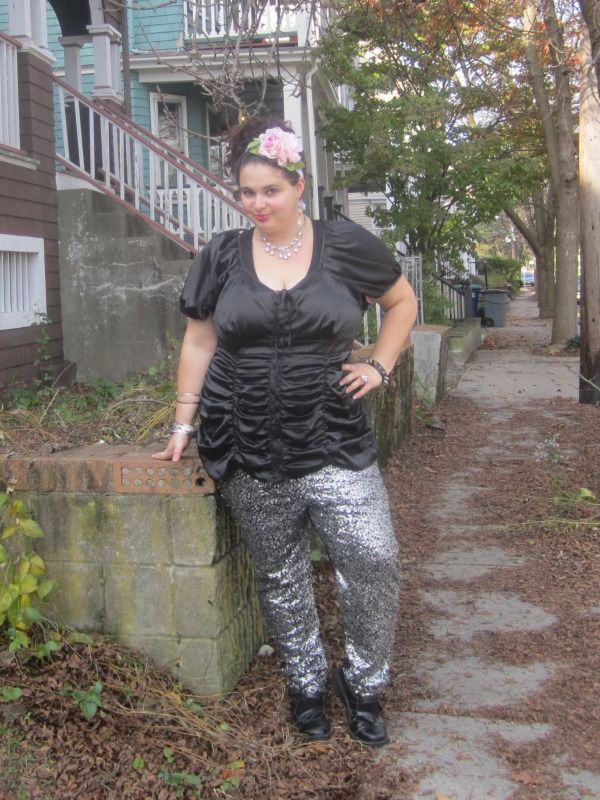
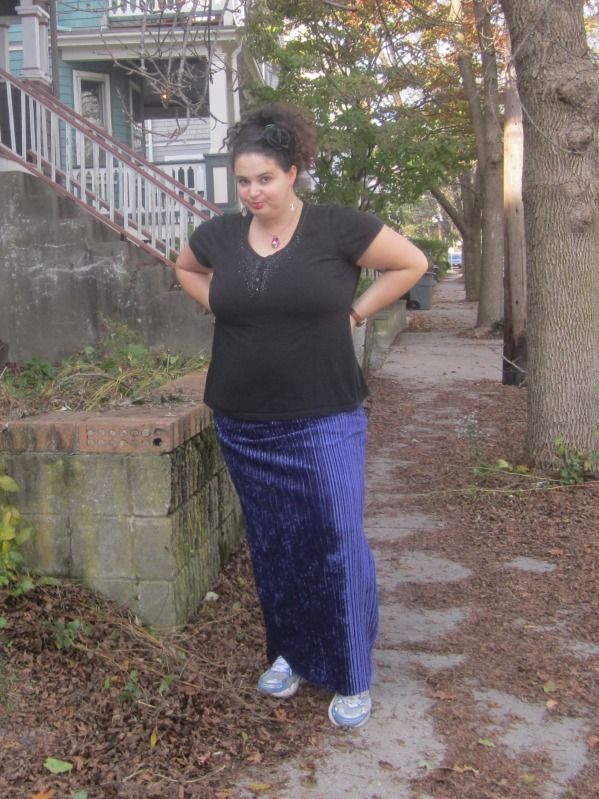


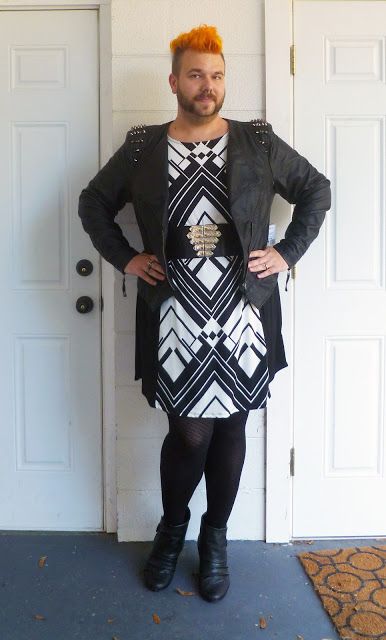
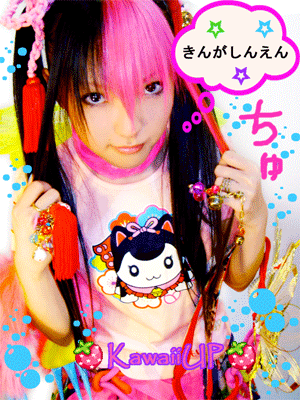
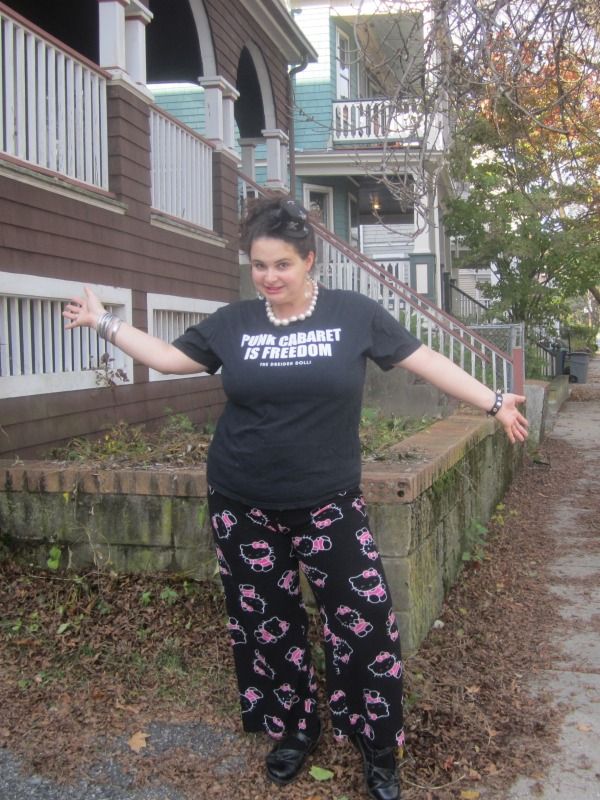
Recent Comments